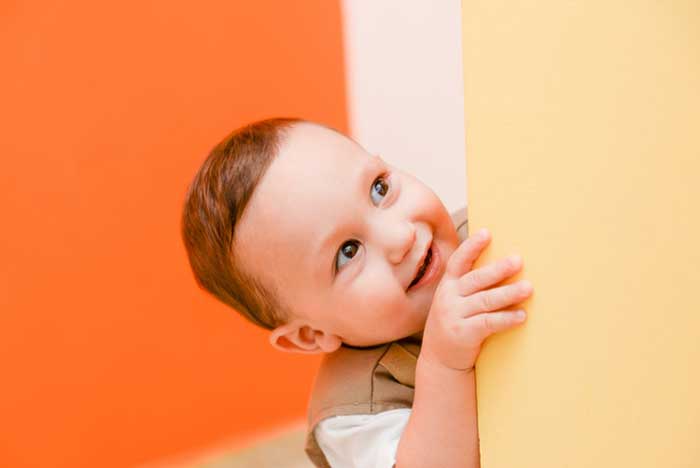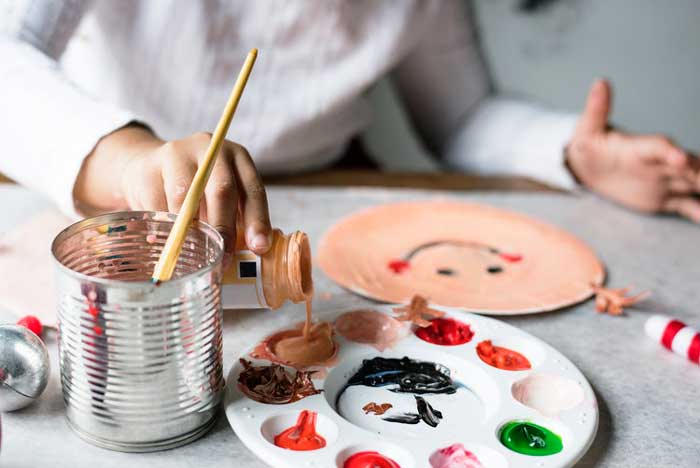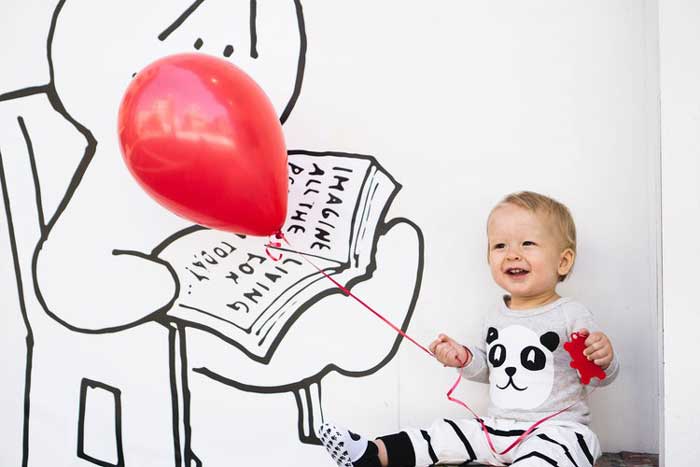How to Raise a Child with a High Self-Esteem & Not Afraid of Being Criticized
A child’s self-esteem must necessarily be high. Otherwise, the child will forever be insecure and unhappy. This is the opinion of the parents who do not even understand what self-esteem is. They never do simple, but important things for the child to avoid problems with self-esteem. Today we will talk about the principles around which children’s self-esteem is built. And ours too.
 What self-esteem should a child have?
What self-esteem should a child have?
Let’s change the sentence a bit: it is desirable that self-esteem should be adequate, proportionate, and stable rather than fleeting. It should not depend on other people’s imprudent or deliberately critical words.
Self-esteem is a person’s ability to evaluate himself or his qualities and develop and live according to this assessment. Proper self-esteem allows you to make mistakes and never suffer from a pointless sense of guilt. Instead, you need to get experience. After all, only gods do not blunder. It turns out that another feature of adequate self-esteem is realism. It would be nice not to pretend to be gods, who are never mistaken and do not fear anything. Children should never try to do the same either.
Why is it bad to praise a child for every achievement?
Not all families see the point of self-esteem. They begin to zealously praise the child and to say that everything he/she does is better than other kids can hope for! A person who grows up with the confidence that he is the best will inevitably face disappointment. He is sure not to have adequate self-esteem.
The parents who have decided (or it just went this way) to praise the child’s abilities in everything he does or undertakes fail to see the child behind these things. Problems, anxieties, feelings, and worries are simply ignored. That’s where thirty-year-old boys and girls come from, complaining about their fate for not coming and giving them everything that is supposed to have by the right of their talent or superiority. Praise did not help them develop adequate self-esteem.
What can help in this situation and what needs to be done?
1. Take responsibility for your children. You decide, and they don’t
Whatever is said, since we are parents, we make important decisions, and we can choose to consult with our children or not. Which school to go to? To talk to the teacher or not to interfere? We make the decision. There is nothing worse when parents try to rely on the child in making these decisions:
- “We failed to convince him, so he doesn’t go to the kindergarten.”
- “We got divorced because it was better for the children.”
- “We haven’t divorced because my daughter loves her Dad very much.”
- “I cannot prepare him for sleep, he won’t let me do it.”
- “We cannot take the tablet away from her, it all ends with tears.”
This is how parents’ unwillingness to recognize their responsibility and exercise it looks like. No, this is wrong.
- Your child does not go to kindergarten because you have decided this way.
- You are getting divorced because you have decided to do so.
- You do not get divorced because you – and not the children – made that decision.
- You cannot send a child to bed because you fail to see or understand something, you cannot find the right approach. It’s not that the child does not let you do it.
- You do not take away a tablet from your daughter because you do not know how to comfort her and do not want to appear bad in her eyes.
And most importantly, what parents should learn to do while taking care of a child’s self-esteem is to take responsibility for their decisions, even if they are “unpopular”. Even if you are aware that children will remind you in a few years that you have made a mistake.
Here it is – the basis for children’s self-esteem. The world is reliable. Because parents know what to do.
2. Learn to be interested in your children rather than their success
Many years ago, teacher Simon Soloveichik wrote a wonderful book “Pedagogy for All.” You can read it every night before going to bed. It is very inspiring, it keeps you down to earth and helps recover your senses. It produces a triple effect. Its readers are interestingly divided into two categories: those who read the book in awe and those who read ten pages and say: “Fluff, nothing special”. This is how this effect can be explained: the first category of readers finds it interesting to stay with children. Even if they are sometimes too worried about them. The second category is not interested in children. Even their own kids. It happens. There are people who are interested in numbers, cars, music, letters. But not people. Let the children grow up, get interested in numbers, music, or something else, so we’ll have something in common.
To become more self-confident, children need to feel that adults are interested in them
Not just worry about them (“What’s wrong? Are you unwell? Have you got any marks today? Who is this girl from the neighboring house?”). You must be interested in them (“What are you reading? What do you think about the new episode of this series? What makes you sad?”).
For high self-esteem, children need the same things as we need. If the people with whom we live side by side or whom we work with are not interested in us and our thoughts, or they just do not chat with us about everything, we will waste away, and our self-esteem will decrease.
3. Stop making remarks. No matter how difficult life can be
This one deals with the harm of criticism for the self-esteem of any person, and especially the child. Everybody knows about this, but it’s very difficult to avoid making remarks. Our children suffer because of a simple rule: if you have got something, you need to pass it on to someone else. We, adults, are overwhelmed by criticism, flowing from all sides. If we are parents, there is even more pressure. Constant criticism and comments about the child kill any interest and develop the fear of mistakes.
4. Teach the child to make mistakes and appreciate mistakes (do not punish for them)
Kids do everything for the first time and have no experience. A child develops by constantly making mistakes. If we want the child to be confident and not to be afraid of mistakes, we need to support him when he fails and say: “You’re doing a good job, just try again. You are brave and strong! Let’s try it again.” You stand beside him, and at different ages, it means different things: for a two-year-old child, it is enough just to take his hand. A five-year-old kid can be asked if he needs your help. At the age of seven, a child needs help to understand what exactly fails to work. With a 12-year-old child, you need to stay beside him and give support when needed.
5. Praise the child for what he has done rather than for being “the best” kid or “better than someone”
When mistakes are not encouraged or denied (“You cannot fail to understand this, you just don’t want to understand”), and achievements are depicted as being the most outstanding ones, there is a risk of bringing up a king without a kingdom. That is a person who will unconsciously try to keep his sense of superiority over others with all his might. It’s just those strange stories, when a person wants more and seems to have everything to achieve more. But he stumbles, does nothing and only criticizes not so smart and talented, but active and brave people, who succeed in something they do.
That’s it. If you want a better life for your child, praise him not because “other children will never do that”, but praise him for the moments when he has surpassed himself or when he has learned to do something better.
6. Trust your children, even when they lie
Ask adults, who have had a good relationship with their parents and who have managed to do many things in life, if they are grateful to their parents. You will hear that they are grateful for the fact that their parents trusted them. Even when they were not supposed to do so. Teacher Alexander Neill, the founder of Summerhill School, believed that children were mostly lying for the reason of fear. So, if children stop being afraid, they will stop telling lies.
Parents often worry that children lie a lot, some adults manically require their children, to tell the truth, and only the truth.
Alexander Neill wrote about children’s lies, saying that in almost 40 years of his work, he had neither consciously lied to students, nor even felt such a desire. However, this is not entirely true. He admitted that one day he had to lie hard. A girl, whose unhappy story he knew, stole a pound. Three boys – the school theft committee – saw her buy ice cream and cigarettes and arranged a cross-examination. The girl said that Neill had given her that pound. Then the boys brought her to Alexander Neill and asked if he had given Liz a pound. Having assessed the situation, he confirmed he had. The teacher knew that if he had exposed her lies, she would have never trusted him again. He had to prove that he was completely on her side. If the girl’s family had been honest and free, such a situation would never have happened. Neill lied intentionally – with a medical purpose – but in no other circumstances would he dare to lie again.
7. Staying with children till the end
To be on children’s side is another important parental feature that helps a child grow up confident of his/her abilities. To be on the side of your children is to see them, understand them, to know that children have different feelings. Just like other people, they can be angry and unjust. Knowing this, we should still remain on their side. However hard it may be.






